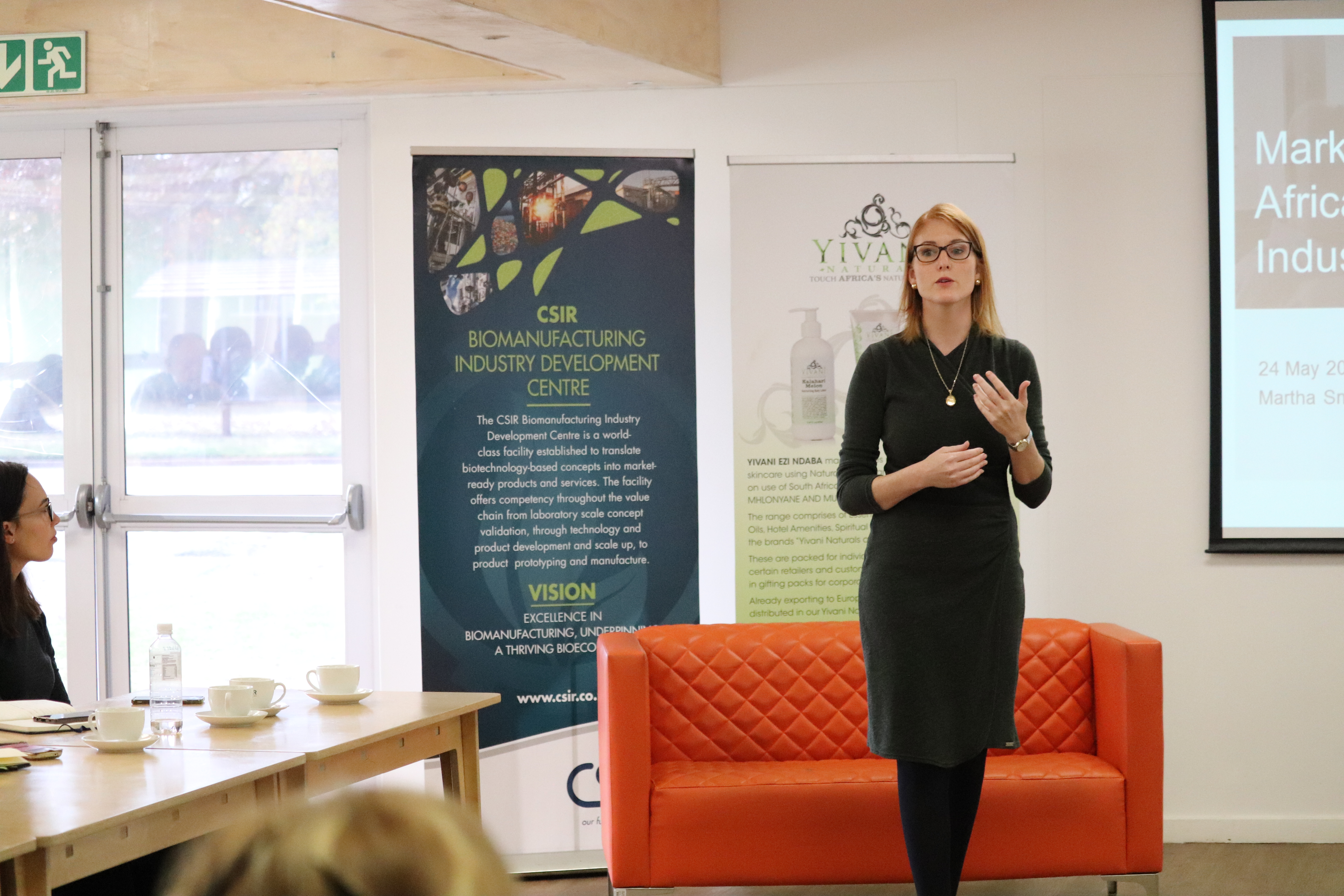With challenges such as access to finance, markets and infrastructure that support new business, the small medium and micro enterprise (SMME) landscape in South Africa has experienced teething problems, which have made it difficult for SMMEs to succeed. With this in mind, the CSIR’s Biomanufacturing Industry Development Centre (BIDC) hosted an Accelerator networking event for SMMEs in the biomanufacturing space, on 24 May 2019.
“Feedback from the SMMEs we interacted with through the BIDC programme consistently showed major challenges around market access and access to funding. Through the quarterly BIDC Accelerator networking events, we aspire to provide a platform for SMMEs to network with experts from industry and entrepreneurs facing similar challenges, while providing an interface at these sessions for the SMMEs and any financial instruments relevant to the sector,” says Lara Kotze-Jacobs, CSIR BIDC Programme Manager.
Talks in this quarter’s session included “The Pharmaceutical Regulatory Environment: Opportunities and Challenges” – a presentation by Martha Smit, a partner in Fasken’s Johannesburg office, and “Funding opportunities: Project Development Partnership Fund” – presented by Lucky Pane from the Public Investment Corporation (PIC).
According to Smit, one of the factors that contribute to the lack of medicinal drugs and medical devices that enter the market is the disconnect that exists between industry and the regulatory environment.
“The legalities involved in getting medical products or devices to market are not easy to navigate. For instance, before a medical device can enter the market, a licence to manufacture, import, export or act as a distributor or wholesaler needs to be granted. Over and above this, an application for the registration of the medical device and the classification of it thereafter must be issued. Often, this process can be quite strenuous and may cause delays, thus preventing locally produced medical devices from entering the market much sooner,” says Smit.
She is of the view that with the global pharmaceutical market expected to rise by 33.3% to US $400 billion by 2019, and the South African pharmaceutical sector being the largest drug market in Africa, with the 5th highest expenditure per capita, a concerted effort needs to be made by the regulatory body to improve the efficiency of its processes and educate industry. Steps towards this direction may encourage active participation and growth of SMMEs in this sector.
Smit’s presentation to the SMMEs also outlined the international perspective on the South African market. According to the United States (US), South Africa is a country with largely sophisticated financial, legal and business services sectors, as well as extensive transportation infrastructure. In addition, the US considers South Africa as a country with strong and capable companies that can serve as good partners for investment and trade.
However, despite the growing appetite to do business with South Africa, some SMMEs miss out on the opportunity to leverage South Africa’s good international reputation due to challenges like access to funding opportunities.
In light of this challenge, which stifles the growth of SMMEs, the PIC has created the Project Development Partnership Fund to provide funding to early stage, investable projects, opportunities or innovations in key and targeted economic sectors, such as agribusiness and bioscience.
“The Project Development Partnership Fund seeks to contribute to South Africa’s socioeconomic objectives, such as job creation, inclusive growth and transformation; while generating financial returns. Projects that meet the fund mandate, while being innovative, aligned to the PIC sectoral strategies and contribute to alleviating socioeconomic challenges will be considered for funding,” says Lucky Pane, PIC Sector Specialist.
After the information and networking session, the BIDC, in collaboration with the PIC, hosted a pitching session for 10 SMMEs, namely iVacBio, Biodx, Liselo Labs, ResynBio, Global Health Biotech, Tokabio, Vida Pharma, BGM Pharma, 3sixtygroup and Respitek (Pty) Ltd.
The platform provided the SMMEs with the opportunity to present their business concepts to a panel in pursuit of funding. The PIC has already short listed companies that it wants to engage with further in preparation for the funding application.

For more information on the BIDC or the Accelerator networking events, please contact the BIDC at @email or visit the website at https://www.csir.co.za/biomanufacturing-industry-development-centre
Contact Person: Lara Kotze-Jacobs, @email,